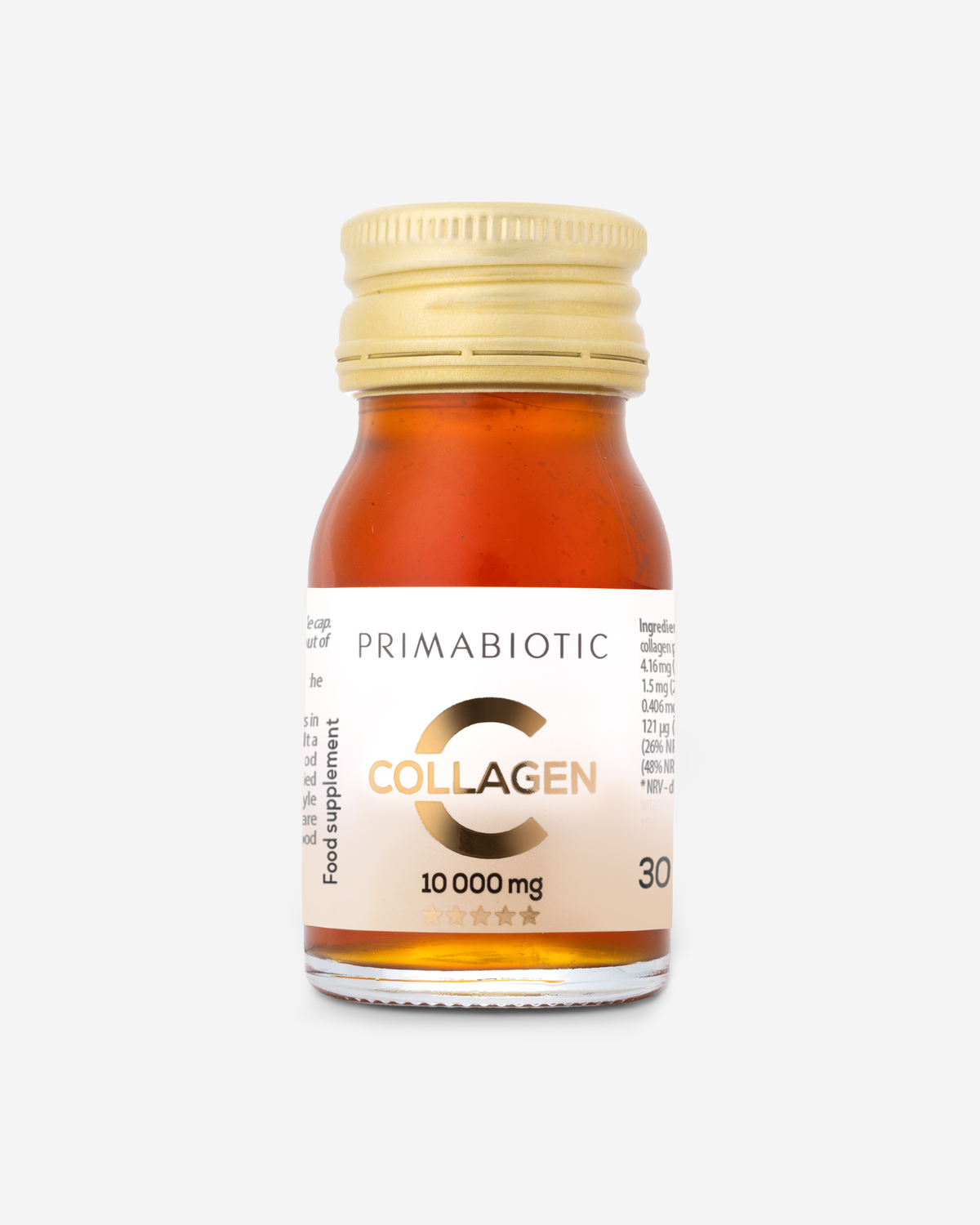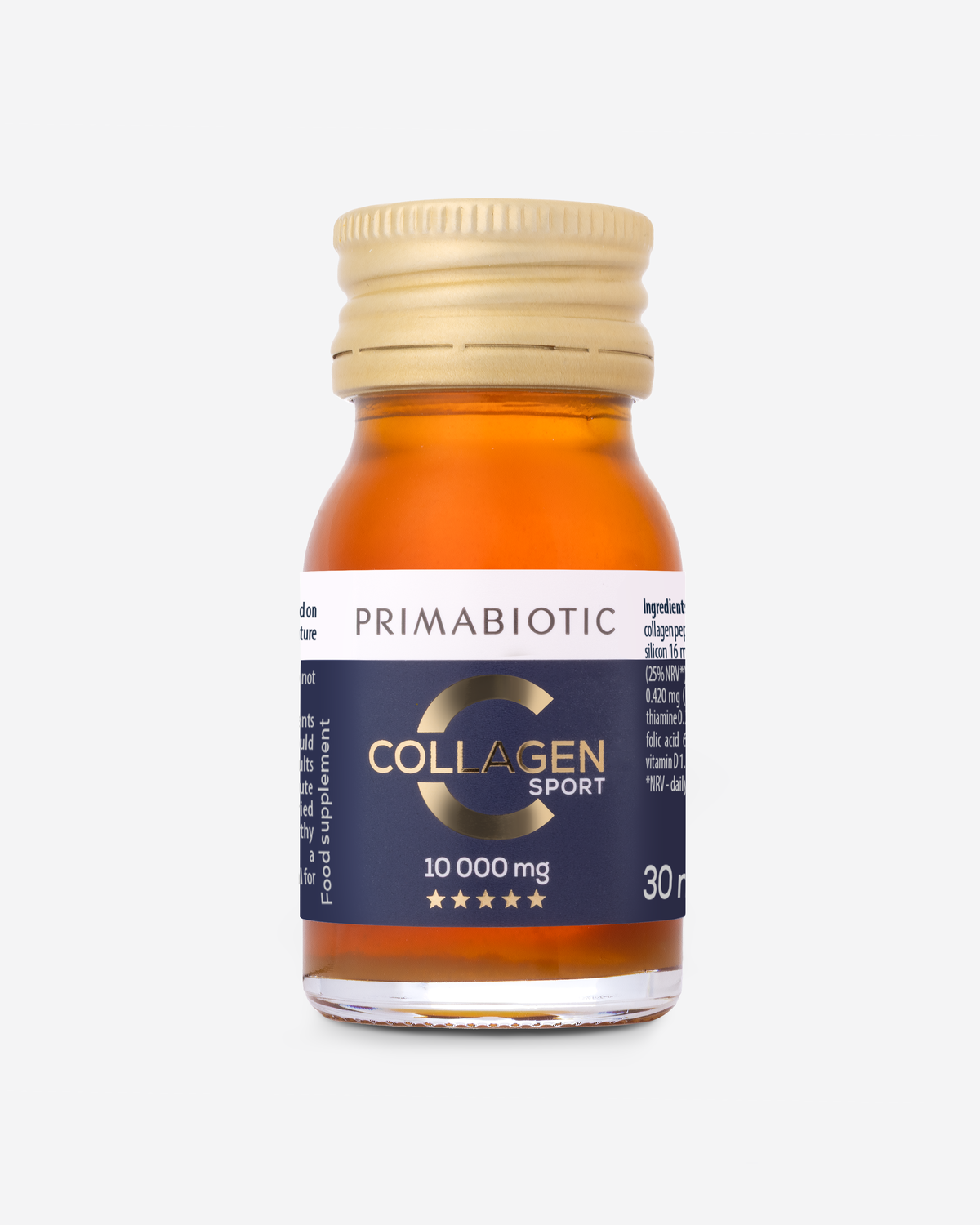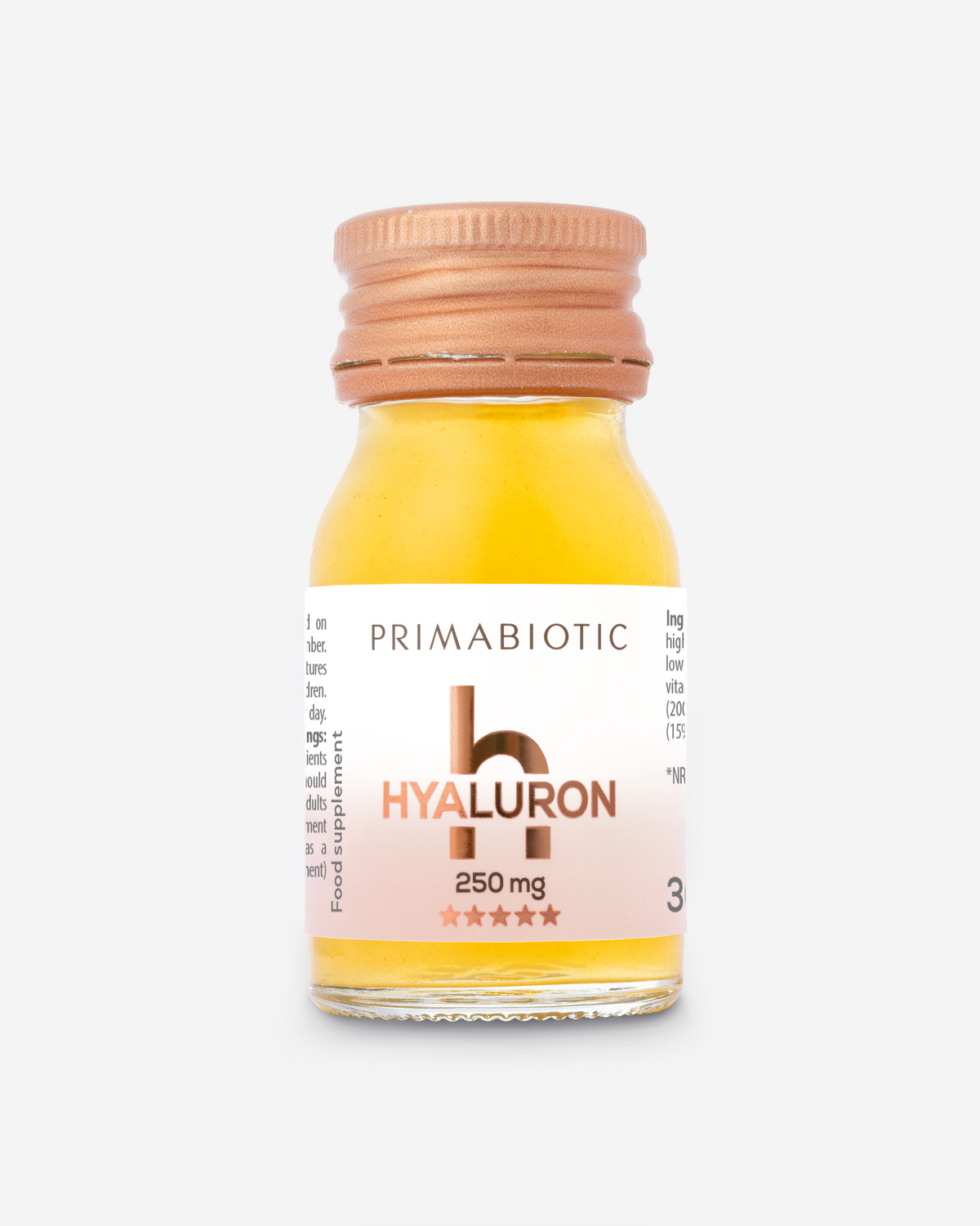Who wouldn't want to be young forever? Everyone dreams of having smooth, firm skin free of wrinkles for as long as possible. Ageing is inevitable, but can you keep looking young for longer by eating the right foods? Read more below!
What Factors Influence the Skin Aging Process?
The pathogenesis of skin aging is a multi-level process influenced by various factors, which allow the aging process to be categorized into different types. Endogenous factors are responsible for intrinsic aging of the skin, while exogenous factors contribute to extrinsic aging.
Intrinsic aging is primarily driven by age and genetic predispositions that determine the rate of adverse changes in the skin's appearance.
In contrast, extrinsic aging is influenced by factors such as climatic conditions, diet, type and nature of work, smoking, the use of stimulants (e.g., alcohol, psychedelics), and excessive exposure to ultraviolet (UV) radiation.
Anti-Aging Diet: What to Eat to Keep Looking Young?
Vitamin C, also known as ascorbic acid, is an essential water-soluble vitamin actively involved in numerous metabolic processes. It is a critical component for maintaining the normal structure and function of the skin and is a powerful antioxidant.
Sources of Vitamin C
- Parsley.
- Red peppers.
- Kiwi.
- Strawberries.
- Red berries.
- Broccoli.
- Blackcurrants.
Benefits of Vitamin C
- Stimulates collagen synthesis.
- Improves skin elasticity.
- Has a brightening effect on the skin.
- Participates in the maturation and regeneration of connective tissue.
Foods Rich in Vitamin E
Vitamin E, often referred to as the "vitamin of youth," is a fat-soluble organic compound composed of tocopherols and tocotrienols. It works synergistically with vitamin C to enhance their combined effects. Among its isomers, alpha-tocopherol is the most active form.
Benefits of Vitamin E
- Protects against external environmental factors such as chemicals, pollutants, and UV radiation.
- Combats free oxygen radicals.
- Slows down the skin aging process through antioxidant properties.
- Nourishes and increases skin elasticity.
- Provides a moisturizing effect.
- Reduces swelling.
- Prevents water loss from the epidermis.
Dietary Sources of Vitamin E
- Vegetable oils.
- Fish.
- Nuts.
- Wheat germ.
- Whole grains.
- Seeds.
- Green peas.
Products Rich in Vitamin A
Vitamin A and its derivatives are essential for maintaining proper skin cell function, growth, and development. Retinoids in the dermis stimulate fibroblast activity, enhancing collagen and elastin synthesis. This leads to improved skin elasticity, firmness, and hydration.
Benefits of Vitamin A
- Accelerates epidermal renewal.
- Promotes faster skin cell regeneration.
- Reduces skin discoloration.
- Minimizes water loss.
Dietary Sources of Vitamin A
- Carrots.
- Peppers.
- Pumpkin.
- Yams.
- Apricots.
- Mangoes.
- Egg yolks.
- Oily marine fish.
Coenzyme Q10 (CoQ10) and Collagen
Coenzyme Q10 is a potent antioxidant that plays a vital role in the mitochondria, where energy is produced through oxygen utilization. Unfortunately, aging results from mitochondrial damage caused by free radicals. In the skin, CoQ10 is primarily found in the epidermis, where it acts as an initial barrier against free radical damage.
Dietary Sources of CoQ10
- Oily marine fish (e.g., salmon, tuna).
- Offal (e.g., liver).
- Whole grain products.
As we age, the production of endogenous collagen decreases, affecting the condition of our skin. The skin's tissue weakens, loses integrity, and becomes dry, leading to reduced moisture retention and the appearance of wrinkles.
Research indicates that taking collagen hydrolysates improves skin quality, increases hydration, reduces wrinkles, and delays the aging process.
Top Food Sources of Collagen
- Jellies.
- Prosciutto.
- Offal.
- Chicken feet.
- Cartilage.
Can Diet Alone Provide Enough Collagen?
A daily diet typically does not provide sufficient collagen or its amino acids to compensate for the body's deficiencies. Supplementing with easily digestible hydrolyzed collagen offers faster and more effective results in replenishing collagen levels.
See similar articles:






